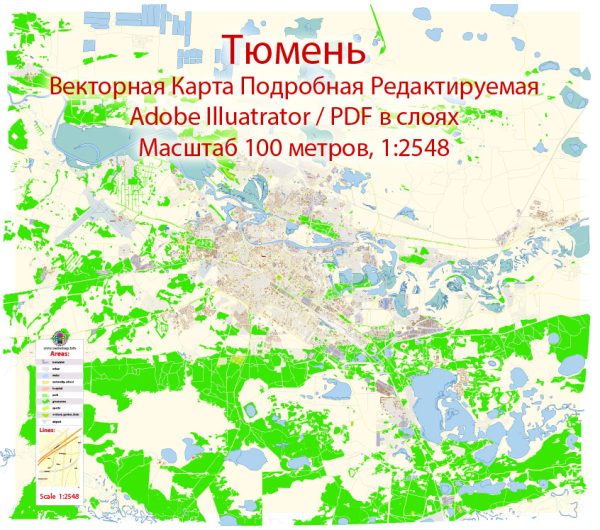Tyumen, one of the oldest cities in Siberia, Russia, has a history that spans several centuries. Here’s an overview of Tyumen’s history of urban development:
- Early Settlements (16th-17th centuries): The region around Tyumen was inhabited by indigenous peoples long before Russian colonization. The city itself was founded in 1586 by the Cossack Yermak Timofeyevich as a fort to defend Russian territories against raids by the Siberian Khanate.
- Russian Expansion and Fur Trade (17th-18th centuries): Tyumen played a crucial role in the Russian expansion into Siberia. The city became a center for the fur trade, attracting merchants and settlers. The development of the Siberian Cossack Host, a military and administrative organization, further solidified Tyumen’s importance in the region.
- Administrative and Commercial Center (18th-19th centuries): Tyumen became an administrative center in Siberia during the 18th century. It served as the seat of the governor-general and played a role in coordinating regional affairs. The city continued to thrive as a hub for trade, agriculture, and craftsmanship.
- Imperial and Soviet Periods (Late 19th-20th centuries): Tyumen experienced significant growth and modernization during the late 19th and early 20th centuries. The Trans-Siberian Railway, completed in the late 19th century, connected Tyumen to the rest of Russia, facilitating trade and migration. The city expanded its industrial base, with the development of oil and gas industries becoming especially prominent in the 20th century. Tyumen also played a role in the Russian Civil War and later became an important administrative center during the Soviet era.
- World War II and Post-War Development: During World War II, Tyumen, like many Russian cities, contributed to the war effort. After the war, the city underwent post-war reconstruction and industrial development. The discovery of oil and gas fields in the Tyumen region in the mid-20th century significantly influenced the city’s economic landscape.
- Late 20th Century to Present: The late 20th century saw continued growth and urban development in Tyumen. The city expanded its infrastructure, and modern amenities were introduced. The oil and gas industry remained a key driver of the local economy. Tyumen also became an important educational and cultural center, with the establishment of institutions such as Tyumen State University.
- Contemporary Urban Development: In recent years, Tyumen has undergone further urban development, with a focus on modernizing infrastructure, creating green spaces, and preserving historical landmarks. The city has worked on enhancing its cultural offerings, promoting tourism, and creating a comfortable living environment for its residents.
Today, Tyumen is a dynamic city that blends its historical heritage with modern economic activities. Its strategic location, natural resources, and historical significance continue to contribute to its role as an important center in Siberia.


 Author: Kirill Shrayber, Ph.D. FRGS
Author: Kirill Shrayber, Ph.D. FRGS